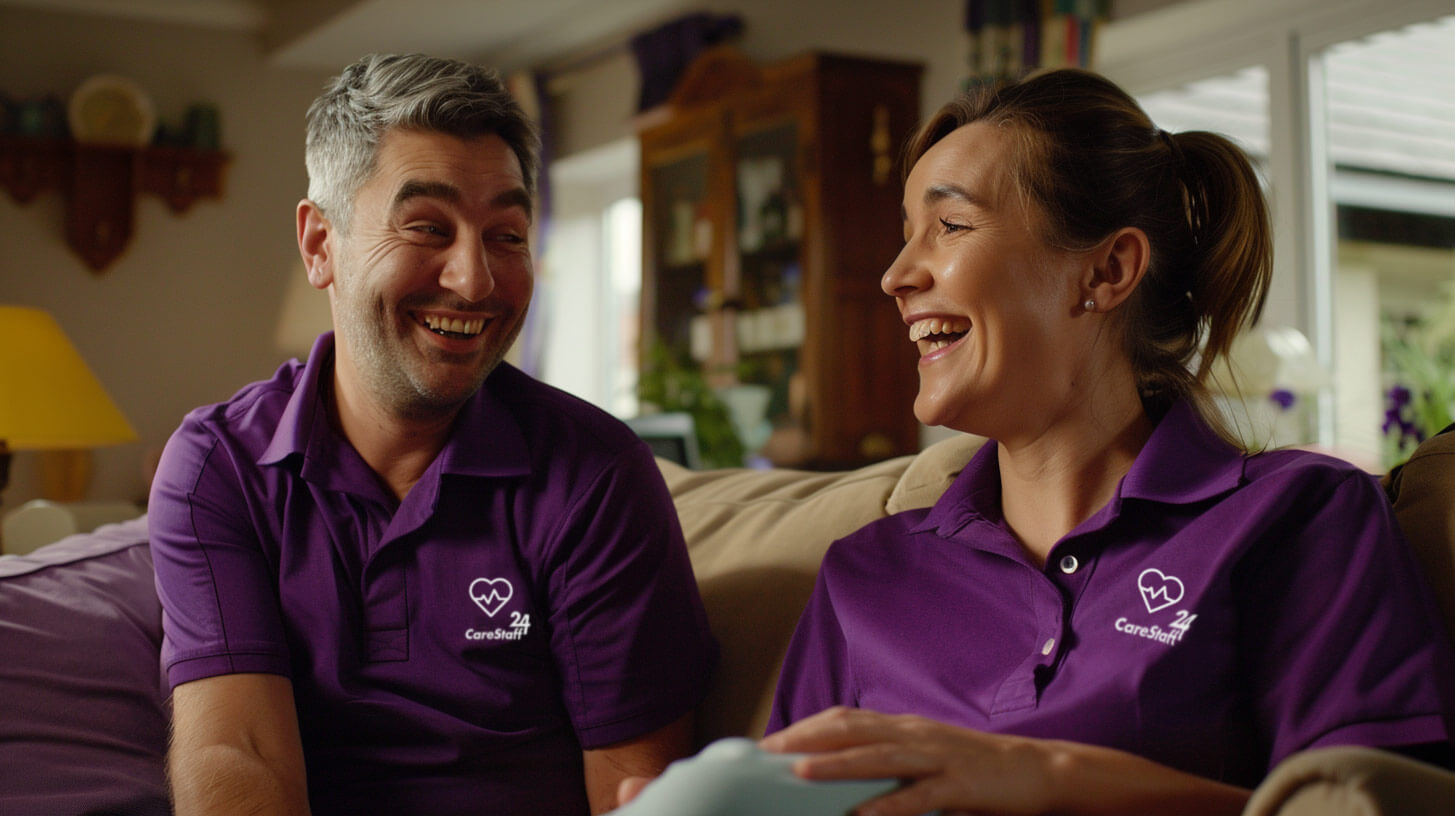
10 Important Tasks For Home Care Assistants
April 7 2024
Being a home care assistant in the UK is a rewarding and fulfilling role that involves providing essential support and companionship to individuals who require assistance with their daily lives within the comfort of their own homes. Home care assistants play a crucial role in enabling people to maintain their independence and dignity while receiving the care and support they need. From helping with personal care tasks such as bathing, dressing, and grooming, to assisting with household chores, meal preparation, and medication management, home care assistants offer valuable assistance tailored to the unique needs of each individual client. Moreover, home care assistants often develop close relationships with their clients, providing not only physical support but also emotional and social companionship. While the role can be demanding and requires compassion, patience, and flexibility, it offers the opportunity to make a meaningful difference in the lives of those in need and contribute to enhancing their quality of life.
10 Home Care Task You Need To Know
Being a home care assistant entails a variety of responsibilities aimed at providing comprehensive support and assistance to clients in their homes, including the following 10 tasks:
1. Personal Care Assistance
Home care assistants often assist clients with personal care tasks such as bathing, showering, grooming, and toileting. Ensuring that clients maintain their personal hygiene not only promotes their physical well-being but also enhances their sense of dignity and self-esteem.
2. Medication Management
Home care assistants may be responsible for administering medications to clients according to prescribed schedules and dosage instructions. It’s crucial for assistants to accurately record medication administration, monitor clients for any adverse reactions, and communicate any concerns to healthcare professionals.
3. Mobility Support
Supporting clients with mobility issues is a key aspect of the role. Home care assistants may help clients with walking, transferring between surfaces, and using mobility aids such as wheelchairs or walking frames. Ensuring clients’ safety and comfort while promoting independence is paramount.
4. Meal Preparation and Nutrition
Home care assistants often assist clients with meal preparation, ensuring that they receive nutritious meals tailored to their dietary needs and preferences. It’s important for assistants to consider factors such as food allergies, dietary restrictions, and cultural preferences while planning and preparing meals.
5. Household Chores
Home care assistants may help clients with light housekeeping tasks such as tidying up, laundry, and meal clean up. Maintaining a clean and organised living environment contributes to clients’ well-being and enhances their comfort and quality of life.
6. Social and Emotional Support
Providing companionship and emotional support is an integral part of the role. Home care assistants may engage clients in conversation, accompany them on outings or social activities, and offer reassurance and encouragement during difficult times. Building rapport and fostering positive relationships with clients is essential for their overall well-being.

7. Monitoring Health and Well-being
Home care assistants are often responsible for monitoring clients’ health and well-being, including observing for any changes in condition or behaviour. They may take vital signs, such as blood pressure and pulse, and report any concerns to healthcare professionals promptly.
8. Communication with Healthcare Professionals
Home care assistants collaborate closely with healthcare professionals, such as nurses, doctors, and therapists, to ensure coordinated care for clients. Effective communication involves sharing relevant information about clients’ condition, progress, and any changes in their care needs.
9. Assistance with Medical Equipment
Home care assistants may assist clients with using medical equipment or devices, such as mobility aids, oxygen therapy equipment, or home monitoring devices. Ensuring that clients are comfortable and competent in using such equipment promotes their safety and independence.
10. Documentation and Reporting
Home care assistants maintain accurate and up-to-date documentation of their interactions with clients, including care plans, progress notes, and incident reports. Clear and thorough documentation is essential for tracking clients’ progress, ensuring continuity of care, and communicating with other members of the care team.
Overall, being a home care assistant involves a diverse range of tasks aimed at promoting clients’ independence, well-being, and quality of life within their home environment. Each task requires empathy, professionalism, and a commitment to providing person-cantered care tailored to the individual needs of clients.
Sound Like You?
Join CareStaff24 today and embark on a rewarding career in home care! Explore our available positions and become part of a dedicated team committed to making a meaningful difference in the lives of individuals in need. Apply now and begin your journey towards providing compassionate care and support within the comfort of clients’ homes.
